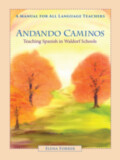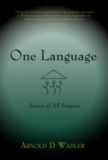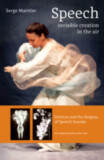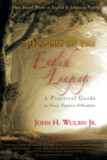The Genius of Language
Observations for Teachers (CW 299)
Introduction by Ruth Pusch
Translated by Ruth Pusch and Gertrude Teutsch
Afterword by Ádám Makkai
- Publisher
SteinerBooks - Published
1st June 1995 - ISBN 9780880103862
- Language English
- Pages 144 pp.
6 lectures, Stuttgart, Dec. 26, 1919 – Jan. 3, 1920 (CW 299)
To one who understands the sense of speech
The world unveils
Its image form.To one who listens to the soul of speech
The world unfolds
Its true being.To one who lives in the spirit depths of speech
The world gives freely
Wisdom’s strength.To one who lovingly can dwell on speech
Speech will accord
Its inner might.So I will turn my heart and mind
Toward the soul
And spirit of words.In love for them
I will then feel myself
Complete and whole.Rudolf Steiner
(translated by Hans and Ruth Pusch)
During the first year of the first Waldorf school, Rudolf Steiner agreed to give a science course to the teachers, which was to be on the nature of light. At the last minute, he was asked to give an additional course on language, which he improvised. "The Genius of Language" is the result.
Steiner demonstrates how history and psychology together form the different languages and how ideas, images, and vocabulary travel through time within various cultural streams. He describes how the power to form language has declined, but that we can still recover the seed of language, the penetration of sound by meaning.
He also explains how consonants imitate outer phenomena, whereas vowels convey a more inner sense of events; he talks about the differentiation of language as it is influenced by geography; he speaks of the "folk soul" element and the possibility of "wordless thinking"; we hear about the capacity of language to transform us and of its importance to our spiritual lives.
This is not just a course on language for those who love words but demonstrates ways to teach children. This little book will prove tremendously valuable to both educators and parents-in fact, to anyone who wants a deeper understanding of language and its significance for our lives.
This volume is a translation from German of Geisteswissenschaftlische Sprachbetrachtungen (GA 299).
C O N T E N T S:
Introduction by Ruth Pusch
A Note by the Translator
1. Language from a Historical Standpoint
2. The Evolution of Language from an Organic Point of View
3. The Transforming Powers of Language in Relation to Spiritual Life
4. History of Language in Its Relation to the Folk Souls
5. Language and the Sense for Reality or Its Lack
6. The Inner Path of the Genius of Language
Afterword by Ádám Makkai
Further Reading on Speech and Language
Index
Rudolf Steiner
Rudolf Steiner (b. Rudolf Joseph Lorenz Steiner, 1861–1925) was born in the small village of Kraljevec, Austro-Hungarian Empire (now in Croatia), where he grew up. As a young man, he lived in Weimar and Berlin, where he became a well-published scientific, literary, and philosophical scholar, known especially for his work with Goethe’s scientific writings. Steiner termed his spiritual philosophy anthroposophy, meaning “wisdom of the human being.” As an exceptionally developed seer, he based his work on direct knowledge and perception of spiritual dimensions. He initiated a modern, universal “spiritual science” that is accessible to anyone willing to exercise clear and unbiased thinking. From his spiritual investigations, Steiner provided suggestions for the renewal of numerous activities, including education (general and for special needs), agriculture, medicine, economics, architecture, science, philosophy, Christianity, and the arts. There are currently thousands of schools, clinics, farms, and initiatives in other fields that involve practical work based on the principles Steiner developed. His many published works feature his research into the spiritual nature of human beings, the evolution of the world and humanity, and methods for personal development. He wrote some thirty books and delivered more than six thousand lectures throughout much of Europe. In 1924, Steiner founded the General Anthroposophical Society, which today has branches around the world.








